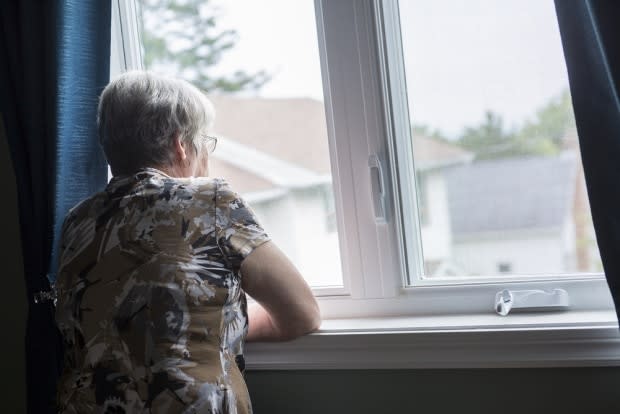Hugs not drugs: Researcher says relationships should be loneliness Rx
A psychiatry resident physician at the University of Calgary says loneliness can be better treated with more social interactions and meaningful relationships than meds.
Loneliness is that uncomfortable and sometimes painful feeling when there's a gap in the quality of the relationships you have and what you desire, says Dr. Jamil Jivraj.
Among mature adults, one in five men are lonely, and it's one in four for women.
"Among older adults, loneliness is linked with a 45 per cent increased risk of death," Jivraj told The Homestretch.
He is presenting his research this week at the National Music Centre's Studio Bell as part of Beakerhead — an annual mashup of arts, science and engineering that runs Wednesday to Sunday in Calgary.

"There is no medication that can treat loneliness," Jivraj said.
"It comes down to relationships. Doctors are beginning to use this idea of a social prescription, helping individuals find ways to engage socially in their communities."
And there's good reason to focus on loneliness.
"We know now it not only affects their quality of life but the length of it, too," Dr. Ami Rokach, a psychologist who has studied the topic for 30 years, told CBC News in an interview.
Beyond causing heightened rates of depression, anxiety and irritability, loneliness is now being associated with potentially life-shortening health issues such as higher blood pressure, heart disease and obesity, she said.
Prolonged loneliness can be more harmful that smoking 15 cigarettes a day, some experts have suggested.
Relational by nature
A mental health specialist agrees that a person's overall health — mental and physical — can be affected.
"Your whole health can be impacted," Cindy Negrello with the Canadian Mental Health Association told CBC News.
She said old school face-to-face is only natural.
"It's really important," she said.
"We are relational as humans by nature. With technology and how fast everything evolves nowadays, it is easy to become more insular and not engage in conversations."
And you don't have to be alone physically for that to happen.
"You often see people isolating, even at the family table. You see people having dinner and no one is talking to each other. That breaks down the opportunity for face-to-face connection."
An almost disturbing photo series of people with cellphones removed by photographer Eric Pickersgill, one that includes a family around a dinner table, is lighting up social media.
Get out of your comfort zone
One solution?
Get out and socialize, even if it means going outside of your comfort zone, Jivraj says.
"That could be, for example, an older adult finding a new group of friends at a public space like a library, a class at a public pool or visiting a science centre. It's about finding ways older adults can engage in their community."
Take a social break
For some people, a screen and social timeout, can be a good place to start.
"When you are flipping through Instagram, you are often seeing people's lives projected in really flattering ways. So when we compare our lives to that, it wouldn't surprise me that would cause distress."
And he wants people to ask some tough, introspective questions.
"To reflect on their relationships. Are they feeling seen, are they feeling heard, do they feel like they matter?" he said.
"If not, we renegotiate, reprioritize so that those relationships are opportunities to build meaning in our lives."

